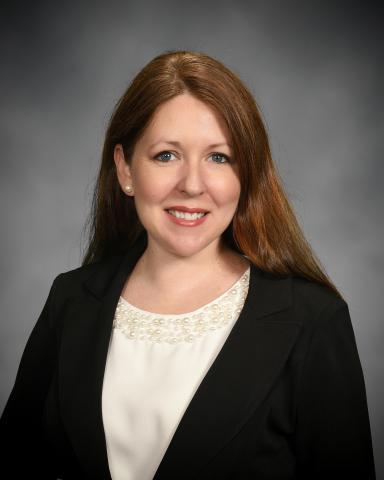Dr. Kristi Morin: Helping Teachers Understand Students with Autism

The boy would throw chairs across the classroom. He would cause other disruptions too, yelling inappropriate comments, or threatening to set things on fire. One time, he stabbed another student with a pencil.
Dr. Kristi Morin knew he wasn’t beyond hope.
“He was very capable of being in a general education classroom,” says Morin. “Intellectually, he was reading above grade level and could do the academic work.”
But the boy, a second grader with autism spectrum disorder, clearly had “some very significant needs,” she says.
It was the question of how she could best address those needs that led Morin – then a classroom teacher, now a professor at the Lehigh College of Education – to pursue her twin interests in teacher development and autism spectrum disorder (ASD).
Morin’s interest in ASD began before she was a classroom teacher, back to when she was studying for her bachelor’s in general education at Louisiana State University at Alexandria. Her program required her to write a paper about a disability of her choosing.
“I chose autism because back then, little was known about it and it’s the disability I knew the least about,” Morin said.
She continued to learn about individuals with autism. When she became a classroom teacher – teaching at the Rapides Parish School District in Alexandria, LA – she had some students with autism in her class, one of whom was the second grader mentioned earlier.
Feeling unprepared to meet the behavioral needs of students like him, Morin started looking for doctoral programs focused on applied behavioral analysis to help her better serve children with autism.
“Through that experience I learned that I am really passionate about helping other teachers who may be feeling overwhelmed in the classroom. I want to help better prepare them to work with students with autism,” she says.
What are some of the things she wishes she could have told herself when she started teaching?
“I think a lot of times, the biggest take away for teachers is to really think about the behavior functionally, for one, and by that, I mean behavior serves as a form of communication,” Morin says. “The child with autism is trying to tell you something through their behaviors.”
That means, rather than simply applying consequences to the student, really thinking about the root cause of their behavior to best meet their needs. Morin also stressed the importance of looking at their behavior introspectively.
“So, instead of, for example, saying ‘Oh, well that student’s just having a bad day,’ or ‘That’s just how that student is,’ really thinking ‘What can I do as a teacher to change my behavior to better support my student,’” she says.
What are some things a teacher can do in those cases?
“They could do things to try to prevent the behavior from occurring, like arranging the classroom environment and providing choice in assignments,” Morin says. “But a lot of what they do is really going depend on what the student is trying to get with their behavior.”
Therefore, if a student is trying to get attention, the teacher can instruct them in more appropriate ways to seek that attention. If they’re trying to get a break from work, it means teaching them how to appropriately ask for a break.
“Reinforcement is a big one though and I very rarely see that,” Morin adds. “Going into the classrooms, that’s one of the biggest things I think teachers can change is just providing more reinforcement. Even just praise, specifically praising the student for things they are doing well and looking for those opportunities to praise the student can make a big difference.”
Of course, this is something that can make a difference with all children. Is there something specific about ASD that makes praise resonate more?
Children with autism often get corrected more than they get praised, Morin says.
“Some days you really have to look for those good things, but they are doing good things, even if it’s just praising effort for trying.”
In addition to these measures, Morin also advocates for technology-based interventions for teachers, which involves teachers recording their instruction, then going back, checking the video, and identifying places they can improve.
The use of video analysis was the subject of Morin’s doctoral thesis at Texas A&M University. She also has a Master of Education in Special Education from Northwestern State University in Louisiana and has completed post-doctoral research training at the Frank Porter Graham Child Development Institute at the University of North Carolina, Chapel Hill.
She says she chose Lehigh because she appreciated how productive the faculty here is in terms of research and because the university supports that research.
There’s also the school’s new Autism Services Clinic. It’s new, has room to grow, and -- just as with her students – Morin hopes she can be a part of its growth and its success.